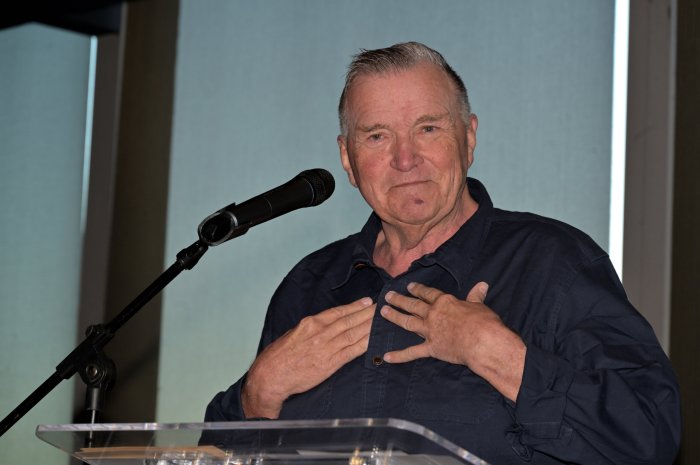As the Human Rights Campaign, the Washington-based LGBT lobby, gets ready for the first possible forward progress in years in Congress under new Democratic leadership, it previewed a report due in January on action on gay and transgender issues at the state level where 379 bills for and against LGBT rights were considered in 2006-about the same number as the previous year.
“For every step forward, there was a half-step back,” said Carrie Evans, HRC's state legislative director.
There were 242 “favorable” bills that “furthered equality,” she said and 34 of those passed, up from 24 last year. And 11 of 137 “unfavorable” bills were enacted in 2006, the same as 2005.
The highlight, said Evans, was Washington State's passage of an anti-discrimination law, the 17th to include sexual orientation in a state human rights statute and the ninth to also cover gender identity and expression. She also cited the November vote of Arizona voters rejecting a constitutional amendment against same-sex marriage, civil unions, and more broadly domestic partnerships for gays and straights alike-the first defeat for such a measure-and the narrower margins by which they were passed in seven other states.
All but a handful of states now have laws limiting marriage to the union of a man and a woman, with 26 barring gays from marriage in their constitutions and 17 of those prohibiting other forms of gay relationship recognition. Hawaii's Constitution lets the Legislature regulate marriage and it denies licenses to gay couples.
Courts in Washington State and New York rejected a constitutional right of gay couples to marry while New Jersey's Supreme Court ordered the Legislature to equalize rights for them. New Jersey lawmakers chose a civil union scheme last week, joining Vermont and Connecticut. California and Hawaii gay couples have access to extensive domestic partner rights, nearly on par with the East Coast civil union benefits. Full marriage equality is only available in Massachusetts-though the 1996 Defense of Marriage Act prohibits federal recognition of any same-sex marriage and allows the states not to honor legal marriages of gay couples licensed elsewhere. Massachusetts currently bars out-of-state gay and lesbian couples, except for those who attest that they plan to move to the state, from marrying.
In the 24 states that do not yet have anti-gay marriage amendments in their constitutions, “it's an uphill battle for anti-gay activists,” Evans said, citing legislative resistance and difficulty with the initiative process in such states as California and Florida. In 2006, 16 state legislatures had pending amendments and 13 failed to muster support for moving them forward to voter referendum. The Indiana Legislature gave the first of two required approvals in 2005 and will be voting on it again in 2007.
While 31 states have hate crimes laws including the category of sexual orientation and 10 also include gender identity or expression, no bills covering these categories were passed this year. Utah passed a hate crimes law, but specifies no defined categories of protections.
After the right-wing success at banning gays from marrying, many thought 2006 would be the year they would turn their attention to limiting same-sex parental rights. Ten such bills were introduced this year and the one that passed in Utah barring courts from granting custody or visitation rights for anyone other than a biological or adoptive parent was vetoed by Republican Governor Jon Huntsman, Jr.
Evans said they “expect restrictions on the right of same-sex couples to adopt in Arkansas, Georgia, and Texas” in 2007. But, they also anticipate that Michigan and Colorado will adopt explicit affirmative laws permitting same-sex co-parents to use the stepparent adoption laws.
“Republican governors vetoed good legislation out of Democratic legislatures in three states-Vermont, Colorado, and in California,” Evans said, where Arnold Schwarzenegger nixed three meausures. In 2005, the California governor vetoed the first same-sex marriage law ever approved by a state legislature.
Legislatures where both houses were led by Democrats introduced 77 pro-LGBT rights bills and passed 32 percent. Republican-controlled bodies had 54 positive bills to consider and passed only one. According to Evans, the Midwest was the only region that did not pass positive bills and the Northeast was the only one to reject all negative legislation.
While HRC maintains its stance as a non-partisan organization in the face of a Republican Party whose platform is overtly hostile to LGBT rights, Evans acknowledged that “80 percent of all bad legislation that passed” in the states was by legislatures where Republicans controlled both houses.
The full report on the states should be available online at http://www.hrc.org early in 2007.


































